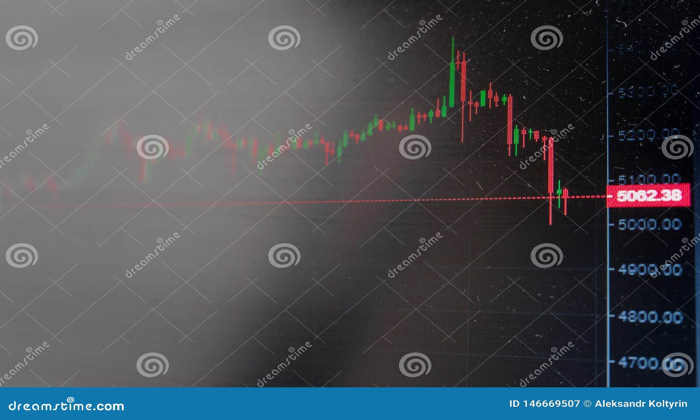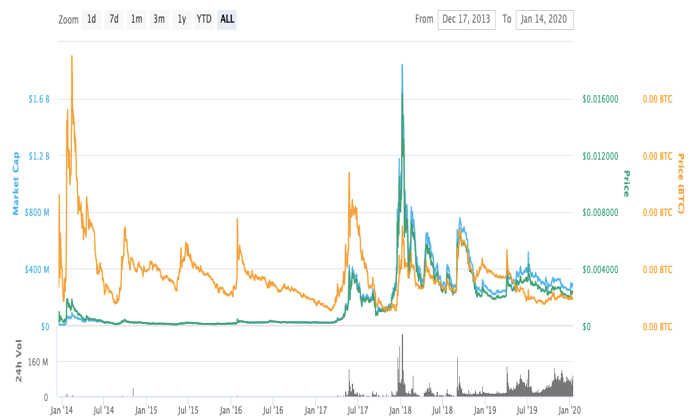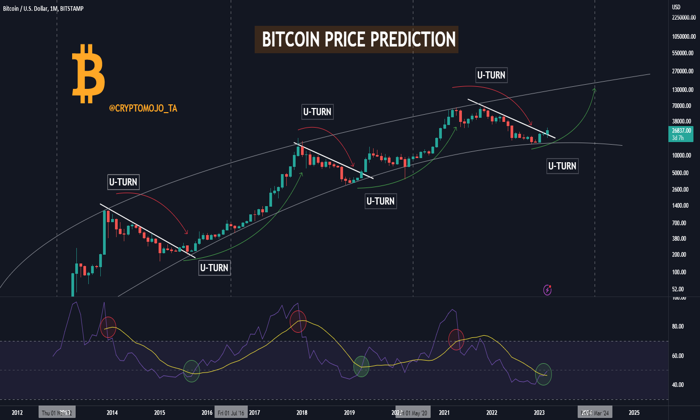The recent Bitcoin price drop has sent shockwaves through the cryptocurrency market, leading many investors to reassess their positions. Trading below the $78,000 threshold, Bitcoin’s decline of 6% mirrors a broader trend impacting equities worldwide, spurred on by President Donald Trump’s announcement of stringent tariffs. As fear of a global trade war looms, the market reacted with significant volatility, resulting in a staggering $247 million in Bitcoin liquidation over a 24-hour period. With Bitcoin now down 28% from its all-time high of $109,000 seen earlier this year, the question arises: how will this downturn shape the future of digital currencies? The correlation between Bitcoin’s fluctuations and external economic factors highlights the vulnerability of the cryptocurrency landscape amid political and structural changes in global trade.
In recent days, the flagship digital currency has encountered a pronounced decline, prompting widespread concern among cryptocurrency investors. This downturn comes on the heels of volatile market conditions, largely influenced by geopolitical events related to tariff announcements by the U.S. administration. The ramifications of these tariffs extend beyond Bitcoin, casting a shadow over the entire digital asset sphere and fostering an environment of apprehension. Observers now speculate on the potential for further price contractions as the forces of global economic tension continue to exert pressure. As the investment climate grows more precarious, the parity between Bitcoin and broader financial indicators becomes increasingly evident.
Understanding the Recent Bitcoin Price Drop
The recent Bitcoin price drop below the $78,000 mark is a stark indicator of shifting investor sentiment in the cryptocurrency market. As Bitcoin plummeted to $77,840, reflecting a dramatic 6% decline, many analysts have pointed to external factors, mainly the announcement of restrictive tariffs by President Trump, as a catalyst for this downturn. The cryptocurrency market has always displayed high volatility, and the current geopolitical climate exacerbates these fluctuations, making Bitcoin’s price trajectory particularly sensitive to global news.
Investors have become increasingly wary, especially considering Bitcoin’s previous stability when it hovered around the $80,000 threshold. The significant drop signals a sell-off, not just specific to Bitcoin but extending to other major cryptocurrencies as well. With the worst declines in U.S. equities since 2020, this atmosphere of uncertainty has fueled concerns about a broader market downturn, leading many to speculate about the future of cryptocurrencies in an escalating trade war.
The Impact of Trump’s Tariffs on Bitcoin and the Crypto Market
The announcement regarding Trump’s tariffs has triggered a wave of fear among cryptocurrency investors, resulting in a staggering $247 million in Bitcoin liquidations. This financial phenomenon illustrates how deeply intertwined Bitcoin and major tech stocks have become; as sentiment in the tech sector soured, so too did the outlook for Bitcoin. The global trade war implications of these tariffs have led investors to pivot from riskier assets towards safer investments, further underscoring the vulnerability of Bitcoin within the current economic climate.
These tariffs not only apply to Chinese imports but also affect a wide range of trading partners, adding to the uncertainty in the market. This has led to widespread declines in other popular cryptocurrencies, as traders respond to the fear of potential retaliatory measures and escalating tensions. Thus, the cryptocurrency ecosystem is experiencing shockwaves that mirror the declines seen in traditional equity markets, echoing the reality that the macroeconomic environment heavily influences Bitcoin and its peers.
Ripple Effects of the Bitcoin Decline on Global Financial Markets
The ripple effects of the Bitcoin decline extend far beyond cryptocurrency markets, significantly impacting global financial systems. The apprehension surrounding Trump’s tariffs has not only triggered liquidations in Bitcoin, with substantial amounts of long positions being closed out, but has also impacted established financial indices. For example, the S&P Global Broad Market Index faced a staggering drop of approximately $7.46 trillion, indicating that cryptocurrencies are increasingly viewed as barometers of larger market trends.
Moreover, this dynamic showcases the interconnectedness of Bitcoin with equity markets, suggesting that its price movement may continue to reflect broader economic challenges. As traditional markets experience similar volatility and uncertainty, Bitcoin stands at the nexus of financial speculation, with traders looking for signs of recovery or further decline as they navigate the impacts of tariffs and the looming threat of a global trade war.
Bitcoin Liquidations Amid a Tumultuous Market
The recent spike in Bitcoin liquidations, totaling over $247 million in one day, illustrates the intense pressure exerted by market volatility. As news of tariffs broke, many investors were quick to react, resulting in substantial selling activity. This is a stark reminder of the risks associated with trading in cryptocurrencies, where price swings can lead to rapid liquidation events, crippling long-term bullish positions.
These liquidations do not occur in isolation, however; they often trigger a cascading effect, influencing other cryptocurrencies like Ethereum, which also suffered a significant decline. The overall sentiment suggests a cautious approach to investing in cryptocurrencies, as the frantic pace of liquidations reflects a market afraid of potential downturns and the unforeseen impact of regulatory news.
The Broader Cryptocurrency Ecosystem Feeling the Impact
The impact of Bitcoin’s recent price decline has resonated throughout the entire cryptocurrency ecosystem, affecting various tokens and coins. Other platforms like Solana have noted declines of around 12%, illustrating the collective anxiety of investors in the wake of Trump’s economic policies. Such substantial sell-offs highlight how closely tied cryptocurrencies are to macroeconomic developments, and how events in the global marketplace can create ripple effects across all digital assets.
With fears of a potential global trade war looming large, many coins have been rendered vulnerable, facing pressure similar to Bitcoin’s. As investors reassess their strategies and portfolios, the ramifications of tariff announcements become increasingly clear. The expectation that cryptocurrencies would offer a haven during turbulent times is challenged, prompting a reevaluation of their roles in diversified portfolios.
Analyzing the Cryptocurrency Market Amid Economic Uncertainty
The recent fluctuations in Bitcoin prices amidst a backdrop of economic uncertainty raise critical questions about the future of the cryptocurrency market. Analysts suggest that unless specific catalysts arise, Bitcoin is likely to continue mirroring stock markets, which are fraught with worries of recession. The current modus operandi of trading has shifted significantly as investors evaluate their exposure to risk, leading to cautiousness as narratives around Bitcoin shift during turbulent times.
Market behavior indicates that confidence can rapidly dissolve, especially in an environment marked by increasing tariffs and potential retaliation from other countries. This creates a challenging landscape for cryptocurrencies as traders become increasingly selective, focusing on assets that offer a semblance of stability amidst chaos. Understanding these patterns is crucial for navigating potential investment strategies in the current climate.
Navigating Through Volatile Market Conditions with Bitcoin
As Bitcoin approaches levels not seen since the beginning of the year, it presents inherent risks for traders. Those navigating through these turbulent economic conditions must employ strategic thinking, focusing on market indicators and potential signals for reversals. The ability to adapt quickly to changing circumstances is more vital than ever as traders respond to the broader economic landscape that continuously shapes Bitcoin’s trading patterns.
Adopting techniques such as stop-loss orders or diversifying into less correlated assets can help mitigate losses from sudden price drops. The prevailing uncertainty creates an atmosphere where learning and adjusting strategies in real-time will be fundamental for capital preservation and potential gains. As investors face the reality of a volatile market, maintaining vigilance and adaptability will mark the success of many in the cryptocurrency space.
The Future of Bitcoin and Cryptocurrency Investment Strategies
Looking ahead, the future of Bitcoin and the broader cryptocurrency market may depend heavily on external factors relating to global trade, regulations, and economic stability. As tariffs and trade wars become more prevalent, investors must brace for potential impacts on their investments and overall strategy. This evolving landscape encourages traders to stay informed, adapting to changes as they arise while considering the implications of geopolitical events on cryptocurrency prices.
Cryptocurrency investments will likely require a combination of long-term strategies tempered with short-term agility, as traders search for stability in an unpredictable market. Embracing diversified holdings across various digital assets may also provide a buffer against individual asset volatility as we continue to witness these turbulent dynamics. The trajectory of Bitcoin and the overall cryptocurrency ecosystem hinges on evolving market perceptions, making adaptability key for sustained engagement.
Frequently Asked Questions
What caused the recent Bitcoin price drop below $78,000?
The recent Bitcoin price drop below $78,000 can be attributed to significant volatility in broader financial markets, primarily triggered by President Trump’s announcement of new tariffs affecting global trade. This announcement has raised concerns about a potential global trade war, leading to widespread sell-offs in the cryptocurrency market.
How does the global trade war relate to the Bitcoin decline?
The global trade war, instigated by Trump’s tariffs, has created uncertainty among investors. This has resulted in a backlash against riskier assets, including Bitcoin, leading to its decline. The fear of economic downturns often results in investors liquidating their positions in cryptocurrencies, thereby impacting Bitcoin’s price negatively.
What impact did Trump tariffs have on Bitcoin liquidations?
Trump’s tariffs prompted a significant wave of Bitcoin liquidations, with over $247 million liquidated in just 24 hours following the announcement. This indicates the extent to which market sentiment shifted, causing traders to react urgently to perceived risks in both the cryptocurrency market and the broader financial landscape.
How is Bitcoin’s price drop connected to U.S. equity markets?
Bitcoin’s price drop is closely tied to U.S. equity markets, as it often trades in correlation with large tech stocks. The recent decline in equities, the worst since 2020, has driven Bitcoin down alongside fears of economic repercussions from the global trade war. Investors typically view Bitcoin as a sentiment indicator, making it sensitive to fluctuations in stock prices.
What are analysts predicting for Bitcoin following this major price decline?
Analysts predict that Bitcoin may continue to decline in the absence of any new catalysts specific to the cryptocurrency market. With fears of a global recession looming, Bitcoin is likely to remain affected by broader equity market trends, as turbulence in traditional financial markets often spills over into the crypto sector.
Is the Bitcoin price drop part of a larger trend in the cryptocurrency market?
Yes, the Bitcoin price drop is part of a larger trend affecting the entire cryptocurrency market. The recent tariffs have not only impacted Bitcoin but also caused declines in other major cryptocurrencies, as investors retreat to safer assets due to economic uncertainty. This downward trend reflects the interconnectedness of cryptocurrencies and traditional markets.
| Key Point | Details |
|---|---|
| Recent Price Drop | Bitcoin fell below $78,000, trading at $77,840, reflecting a 6% decline. |
| Market Influence | The drop is attributed to significant volatility in broader financial markets, especially following Trump’s tariff announcements. |
| Impact on Investors | Over $247 million in Bitcoin liquidations occurred in 24 hours, indicating a strong market reaction. |
| Relationship with Tech Stocks | Bitcoin trades in correlation with large tech stocks and has been seen as a market sentiment indicator. |
| Global Market Effects | Tariffs raised fears of a global trade war, leading to a wave of sell-offs in the cryptocurrency market. |
| Other Cryptos Affected | Other cryptocurrencies, such as Solana, experienced declines up to 12% within the same time frame. |
| Economic Uncertainty | Analysts suggest that absent significant catalysts, Bitcoin will continue to move with equity markets amidst recession fears. |
Summary
The Bitcoin price drop below $78,000 is a reflection of broader market volatility triggered by President Trump’s recent tariff announcements. Such economic uncertainties have led to significant sell-offs across the crypto ecosystem, illustrating the fragile relationship between cryptocurrencies and traditional financial markets. As Bitcoin struggles to maintain its value amidst these challenges, investors remain cautious about future trends.
The recent Bitcoin price drop has sent shockwaves through the cryptocurrency market, as the leading digital asset plummets below the $78,000 mark, trading at approximately $77,840. This significant decline of 6% comes on the heels of heightened volatility across global financial markets, following President Donald Trump’s controversial announcement of new tariffs. Such measures have exacerbated fears among investors, prompting widespread liquidation in the Bitcoin space, with over $247 million lost in a single day. The Bitcoin decline is particularly notable as it marks a stark 28% drop from its all-time high of $109,000 reached earlier in the year. As the implications of the global trade war unfold, traders are left grappling with uncertainty, impacting the entire cryptocurrency ecosystem and highlighting Bitcoin’s sensitivity to macroeconomic factors.
In the wake of the recent downturn in the digital currency sector, the stark decline in Bitcoin’s value has raised alarms among investors and analysts. Many alternative terms characterize this phenomenon, including significant sell-offs, considerable asset liquidation, and the plummeting prices of numerous cryptocurrencies. With the cryptocurrency market heavily influenced by external events, like Trump’s tariffs and fears of an escalating global trade war, the ripple effects are felt far beyond Bitcoin alone. As Bitcoin’s value falters, the attention turns to how such fluctuations mirror broader financial market sentiments and the precarious nature of digital assets in this turbulent environment.














